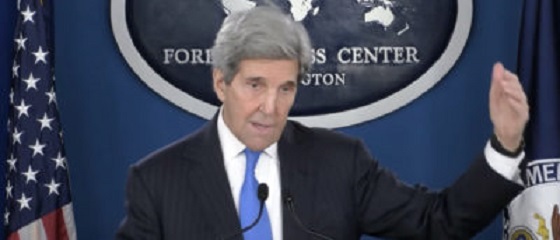Daily Caller
‘Spoiled Brats’: Greenpeace Co-Founder Supports Pipeline Tycoon’s Campaign To Punish His Old Group

 From the Daily Caller News Foundation
From the Daily Caller News Foundation
By Nick Pope
One of the original founders of Greenpeace told the Daily Caller News Foundation that he hopes to see Greenpeace USA lose a lawsuit that threatens the group’s existence.
Patrick Moore, who was listed on Greenpeace’s website as one of the original founders as recently as 2007 before the organization attempted to distance itself from him, would like Greenpeace USA to lose the massive lawsuit filed against the group by a company called Energy Transfer, he told the DCNF. The company is seeking $300 million in damages from Greenpeace USA in a North Dakota lawsuit that alleges the group or its entities incited major protests against Energy Transfer’s Dakota Access Pipeline, funded various attacks meant to damage the project and orchestrated a smear campaign against the company and its development.
“They’ve got to embrace what is really true science…. They ignore massively important facts, and then make lies up to replace them. So yes, I hope they are going to learn a lesson from this,” Moore told the DCNF regarding his old group and the lawsuit it faces. “Science is about truth, and then you decide your policy. These guys, they personally decide the policy, and then they lie about the underlying scientific aspects. It just completely bastardized science in much of the world, especially in the Western world … they have become sort of spoiled brats, I would say, and they don’t have good science.”
‘They’re Gonna Pay For It’: A Single Texas Billionaire May Be About To Force Greenpeace USA Into Bankruptcyhttps://t.co/2laZEUZ1Jv
— Daily Caller (@DailyCaller) September 10, 2024
Greenpeace USA “would certainly deserve” to lose the lawsuit, Moore told the DCNF. “They are basically attempting to destroy the means of transportation and so many other things. There’s no doubt about it that pipelines are the safest way to move liquids, especially flammable ones. There’s simply no question.”
Moore went on to play “a significant role” in Greenpeace’s Canadian arm, according to Greenpeace, but he left the organization in 1986 because he felt it had become too radical. Despite listing him as an original founder as recently as 2007, Greenpeace now has an entire website dedicated to explaining that Moore does not represent the organization and that he is not an original founder.
Energy Transfer’s billionaire executive chairman Kelcy Warren is behind the company’s lawsuit, The Wall Street Journal reported Sunday. Warren, who once said that green activists ought to be “removed from the gene pool,” views climate activists as a significant threat to the energy industry and has stated that he is unafraid to go after them for the problems they caused for the company and the Dakota Access Pipeline.
Meanwhile, some of Greenpeace USA’s top leaders have fought internally about what kind of settlement may be acceptable to reach with the company, according to the WSJ. However, even if Energy Transfer wins the lawsuit, it may be difficult to enforce penalties against Greenpeace’s central coordinating body in the Netherlands because that entity does not hold assets in the U.S.
Representatives for Greenpeace USA did not respond immediately to a request for comment.
Daily Caller
Tom Homan Predicts Deportation Of Most Third World Migrants Over Risks From Screening Docs


From the Daily Caller News Foundation
White House border czar Tom Homan predicted Sunday the Trump administration will deport the majority of Third World migrants due to vetting challenges.
Two National Guardsmen were shot Wednesday, allegedly by an Afghan national brought into the U.S. under the Biden administration. The attack prompted President Donald Trump to announce in a Thursday post on Truth Social that his administration would “permanently pause migration from all Third World Countries.” Homan said on Fox News’s “Sunday Morning Futures” that Third World nations could not be relied upon to provide accurate information for vetting migrants.
Dear Readers:
As a nonprofit, we are dependent on the generosity of our readers.
Please consider making a small donation of any amount here.
Thank you!
“[T]hese Third World nations, they don’t have systems like we do. So, a lot of these Afghanistans, when they did get here and get vetted, they had no identification at all. Not a single travel document, not one piece of identification,” Homan said. “And we’re going to count on the people that run Afghanistan, the Taliban, to provide us any information [on] who the bad guys were or who the good guys are? Certainly not. And many people need to understand that most terrorists in this world, most of ’em, aren’t in any database.”
“And the same thing with illegal aliens, the over 10 million that came across the border under Joe Biden. There’s no way to vet these people. You think El Salvador or Turkey or Sudan or any of these countries have the databases or system checks that we have?” he added. “Do you think the government[s] of China, Russia, Turkey, do you think they’re going to share that data with us even if they did have it? There’s no way to clearly vet these people 100% that they’re safe to come to this country from these Third World nations.”
The president also wrote in his Thursday post he would “terminate all of the millions of Biden illegal admissions,” along with deporting those who do not offer value to the United States. Homan said Trump is correct to evaluate all migrants who entered under Biden.
“I really, truly think that most of ’em are [going to] end up being deported ’cause we’re not going to be able to properly vet them,” he said.
Similarly, Homeland Security Secretary Kristi Noem asserted Sunday on NBC News’s “Meet the Press” the Trump administration would deport individuals with pending asylum claims.
West Virginia Army National Guard Specialist Sarah Beckstrom, 20, perished Thursday from wounds sustained in Wednesday’s shooting. The other victim, Air Force Staff Sgt. Andrew Wolfe, remains in critical condition at the time of publication.
The shooting was allegedly carried out by Rahmanullah Lakanwal, who entered the country in September 2021 after the U.S. military’s withdrawal from Afghanistan. Lakanwal previously worked with the U.S. government, including the CIA, and was admitted into the U.S. under the Biden administration’s Operation Allies Welcome, which resettled Afghans who had helped American forces.
Lakanwal applied for asylum in 2024, which the Trump administration granted in April 2025, according to Reuters. The alleged gunman shouted, “Allahu akbar!” before opening fire with a revolver, independent journalist Julio Rojas reported.
As of December 2024, over 180,000 Afghans were resettled in the U.S. following its August 2021 withdrawal, according to the State Department. After the shooting, the U.S. Citizenship and Immigration Services (USCIS) announced that the “processing of all immigration requests relating to Afghan nationals” would be paused “indefinitely.”
USCIS also asserted Thursday it would conduct a full-scale reexamination of all green cards granted to individuals from 19 countries “of concern” at Trump’s direction. The agency added in a later statement that, when vetting migrants from those nations, it would weigh “negative, country specific factors,” such as whether the country was able to “issue secure identity documents.”
Daily Caller
John Kerry Lurches Back Onto Global Stage For One Final Gasp


From the Daily Caller News Foundation
John Kerry, one of the grandest and most persistent climate scolds of the 21stcentury, lurched back into the news this week when he was knighted by Britain’s King Charles, a prominent climate scold in his own right.
In fact, their shared efforts involving flying off on carbon-spewing private jets to lecture the masses to live smaller, more costly lives in the name of fighting climate change was the motivation for the award, as the King thanked Kerry for his “services to tackling climate change.” That seems to be a bit of a grammatical error, but when royalty is involved, no one really cares, do they?
“King Charles and I share the same point of view — that there’s an urgency to doing things,” Kerry told the Globe in an interview. “He’s been ahead of most folks on this from the time I can remember… He always had a commitment to nature.”
Unfortunately for the U.K.’s citizens, the Labour government’s “commitment to nature” mainly appears to involve covering thousands of acres of bucolic British farmland with massive solar arrays and felling thousands of forest trees to make home to big wind installations these days.
Projects like those – frequently forced by the central government on objecting rural communities – form the centerpiece of Secretary of State for Energy Security and Net Zero Ed Miliband’s program to deindustrialize the formerly formidable British economy.
That program – based on the shared philosophy of King Charles and Kerry – has sent the U.K.’s utility rates skyrocketing to the highest on earth. It has also rendered the former global power dependent on imports from foreign nations for its energy security, with China the most prominent among them.
Such are the fruits of the King Charles/Kerry “point of view.” Most would agree with Kerry’s statement that “there’s an urgency to doing things.” The problem is that pretty much everything he and the King have been doing in this realm across the first quarter of the 21st century leads inevitably to serfdom to the Chinese Communist Party.
In an interview with the Financial Times the same day, Kerry repeated much of the tiresome dogma of his alarmist religion, in the process excoriating President Donald Trump as a “denier” and calling U.S. corporate leaders cowards for straying from the narrative he and the King prefer. “It is not that they don’t believe [in climate change] or they don’t want to move forward. They are just scared,” Kerry said of the corporate CEOs, adding, “The process of Donald Trump in the last months, coupled with the justice department, coupled with his vengeance programs, has scared… a lot of people.”
But a more believable alternative explanation for the shift away from the twin manias of ESG and DEI by many companies in recent years is that these corporate leaders have a fiduciary duty to maximize returns on capital to their investors. The problem for Kerry and his disciples is that the preferred alternatives they have advanced too often devolved into unprofitable boondoggles that fail to satisfy that duty. Kerry wants to place the entire blame on Trump – who, ironically, was recently honored by King Charles himself with an unprecedented second state dinner. But the truth is that shift started in earnest in 2023, when Joe Biden’s autopen was still in charge of the ship of American state.
That shift has certainly accelerated this year, as companies have been freed from the incessant hectoring of the Biden government and are now being denied access to the ruinous green subsidies from the IRA that so radically distorted energy markets. This has little to do with climate denialism or cowardice and much to do with sound business practice and CEOs properly carrying out the mandates of their high positions. No amount of hyperbolic talking points from Kerry or the King can change that reality.
In the end, Kerry’s remarks come off as a lot of sound and fury signifying nothing. Now in the twilight of his career, he has become a relic, a totem of a fading global religion whose end cannot come soon enough.
David Blackmon is an energy writer and consultant based in Texas. He spent 40 years in the oil and gas business, where he specialized in public policy and communications.
-

 Food21 hours ago
Food21 hours agoCanada Still Serves Up Food Dyes The FDA Has Banned
-

 Daily Caller2 days ago
Daily Caller2 days agoJohn Kerry Lurches Back Onto Global Stage For One Final Gasp
-

 National1 day ago
National1 day agoEco-radical Canadian Cabinet minister resigns after oil deal approved
-

 Addictions22 hours ago
Addictions22 hours agoManitoba Is Doubling Down On A Failed Drug Policy
-

 Alberta22 hours ago
Alberta22 hours agoNet Zero goal is a fundamental flaw in the Ottawa-Alberta MOU
-

 Alberta17 hours ago
Alberta17 hours agoKeynote address of Premier Danielle Smith at 2025 UCP AGM
-

 COVID-1922 hours ago
COVID-1922 hours agoFDA says COVID shots ‘killed’ at least 10 children, promises new vaccine safeguards
-

 Energy8 hours ago
Energy8 hours agoCanadians will soon be versed in massive West Coast LPG mega-project




